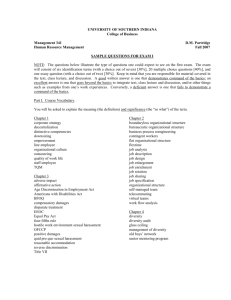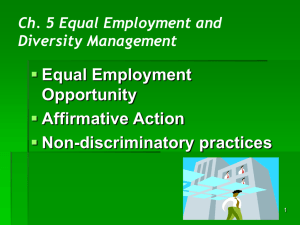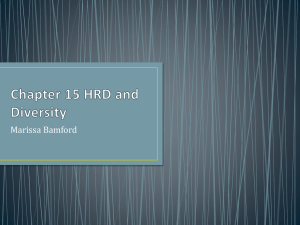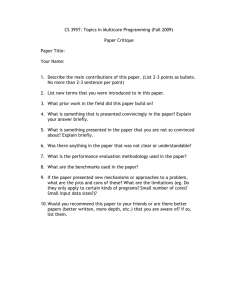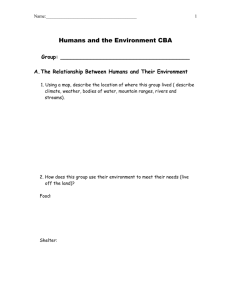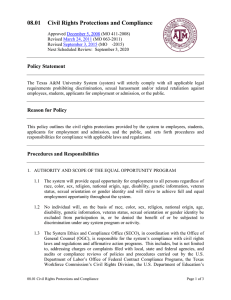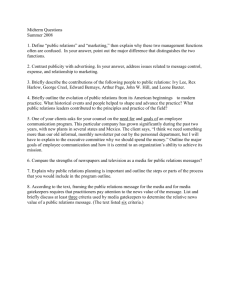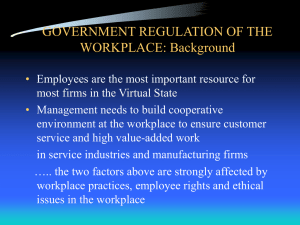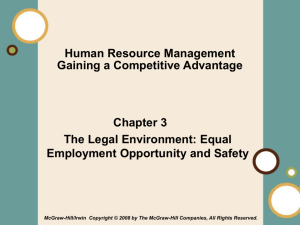radford university - University of Southern Indiana
advertisement
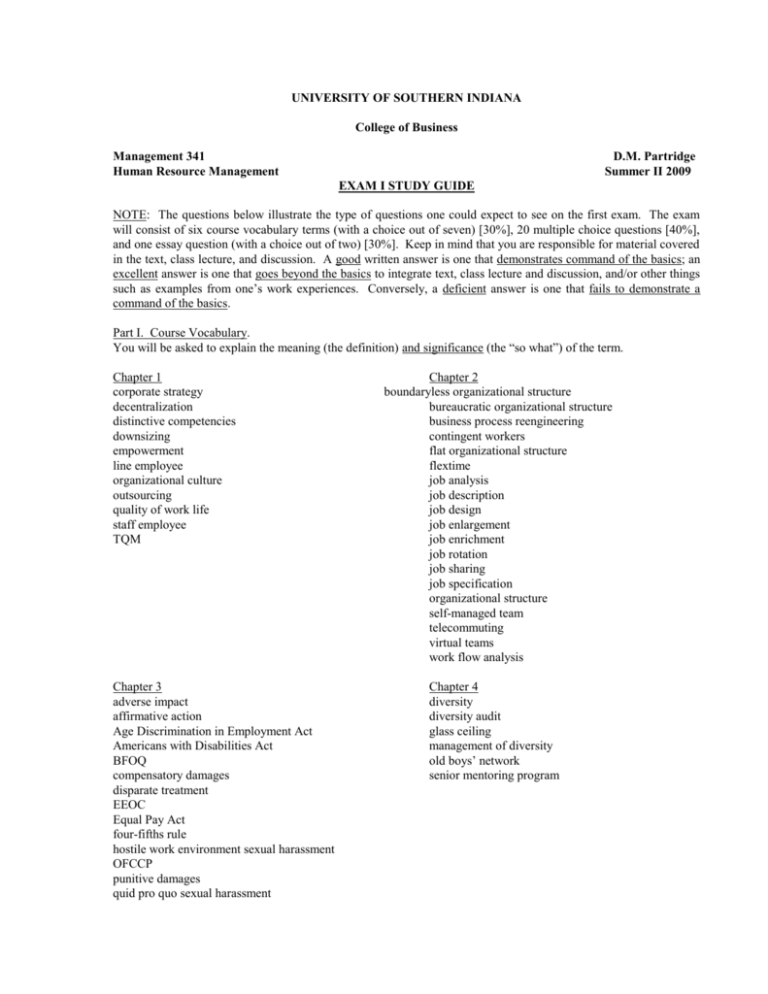
UNIVERSITY OF SOUTHERN INDIANA College of Business Management 341 Human Resource Management D.M. Partridge Summer II 2009 EXAM I STUDY GUIDE NOTE: The questions below illustrate the type of questions one could expect to see on the first exam. The exam will consist of six course vocabulary terms (with a choice out of seven) [30%], 20 multiple choice questions [40%], and one essay question (with a choice out of two) [30%]. Keep in mind that you are responsible for material covered in the text, class lecture, and discussion. A good written answer is one that demonstrates command of the basics; an excellent answer is one that goes beyond the basics to integrate text, class lecture and discussion, and/or other things such as examples from one’s work experiences. Conversely, a deficient answer is one that fails to demonstrate a command of the basics. Part I. Course Vocabulary. You will be asked to explain the meaning (the definition) and significance (the “so what”) of the term. Chapter 1 corporate strategy decentralization distinctive competencies downsizing empowerment line employee organizational culture outsourcing quality of work life staff employee TQM Chapter 3 adverse impact affirmative action Age Discrimination in Employment Act Americans with Disabilities Act BFOQ compensatory damages disparate treatment EEOC Equal Pay Act four-fifths rule hostile work environment sexual harassment OFCCP punitive damages quid pro quo sexual harassment Chapter 2 boundaryless organizational structure bureaucratic organizational structure business process reengineering contingent workers flat organizational structure flextime job analysis job description job design job enlargement job enrichment job rotation job sharing job specification organizational structure self-managed team telecommuting virtual teams work flow analysis Chapter 4 diversity diversity audit glass ceiling management of diversity old boys’ network senior mentoring program reasonable accommodation reverse discrimination Title VII Part II. Multiple Choice Questions. These questions will be based primarily on text material. Material covered both in the text and in class has a greater likelihood of appearing on the exam. Here is an example: A dual-career family is one in which: a) the major “bread-winner” works two jobs. b) the wife is a homemaker and the husband works outside of the home. c) the major “bread-winner” experiences a career change and takes a new job. d) both husband and wife work. e) both husband and wife own their own business. Part III. Essay Questions. These questions will be quite similar to those appearing below. Students are encouraged to develop outlines for the essays, working either alone or with classmates, although no outlines may be brought into the examination. 1. The Human Resource function faces a number of challenges. Briefly discuss: (a) the benefits of strategic HR planning; (b) the challenges of strategic HR planning; and (c) 2. Fair employment legislation has a considerable impact on HR policies and practices. Briefly discuss: (a) the meaning of illegal discrimination: (b) the meaning of affirmative action and its impact on a firm’s recruitment and selection practices; and (c) 3. The labor force is becoming more diverse in terms of ethnicity, race, gender, sexual orientation, disability, and other cultural factors. Briefly discuss: (a) why employee diversity should be managed and the distinction between diversity management and affirmative action; (b) challenges in managing diversity; and (c) 4. Job design and analysis is a procedure through which one finds out the nature of the job and the kinds of people that should be hired. Briefly discuss: (a) the several types of teams used in organizations today; (b) various approaches to job design; and (c)
